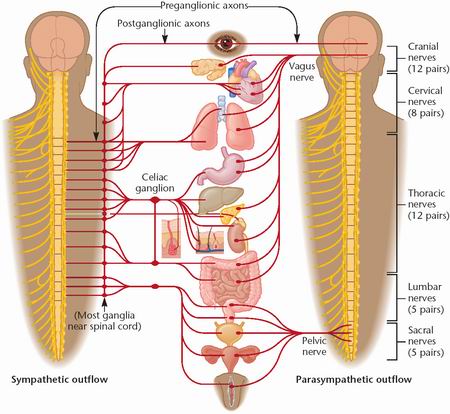Aldous Huxley Quote
There will be, in the next generation or so, a pharmacological method of making people love their servitude, and producing dictatorship without tears, so to speak, producing a kind of painless concentration camp for entire societies, so that people will in fact have their liberties taken away from them, but will rather enjoy it, because they will be distracted from any desire to rebel by propaganda or brainwashing, or brainwashing enhanced by pharmacological methods. And this seems to be the final revolution.” Aldous Huxley
Japanese Psychotherapy
http://www.todoinstitute.org/morita.html
"The Naturalness of Feelings (Arugamama)
If we find out that we have just won the lottery, we may be excited and happy. But if we find out about the death of a loved one, we may feel sadness and grief. Such feelings are natural responses to our life circumstances and we need not try to “fix” or “change” them. Arugamama (acceptance of reality as it is) involves accepting our feelings and thoughts without trying to change them or “work through” them.
This means that if we feel depressed, we accept our feelings of depression. If we feel anxious, we accept our feelings of anxiety. Rather than direct our attention and energy to our feeling state, we instead direct our efforts toward living our life well. We set goals and take steps to accomplish what is important even as we co-exist with unpleasant feelings from time to time.
Feelings are Uncontrollable
There is an assumption behind many Western therapeutic methods that it is necessary to change or modify our feeling state before we can take action. We assume that we must “overcome” fear to dive into a pool, or develop confidence so we can make a public presentation. But in actuality, it is not necessary to change our feelings in order to take action. In fact, it is our efforts to change our feelings that often makes us feel even worse."
From the Web site
"The Naturalness of Feelings (Arugamama)
If we find out that we have just won the lottery, we may be excited and happy. But if we find out about the death of a loved one, we may feel sadness and grief. Such feelings are natural responses to our life circumstances and we need not try to “fix” or “change” them. Arugamama (acceptance of reality as it is) involves accepting our feelings and thoughts without trying to change them or “work through” them.
This means that if we feel depressed, we accept our feelings of depression. If we feel anxious, we accept our feelings of anxiety. Rather than direct our attention and energy to our feeling state, we instead direct our efforts toward living our life well. We set goals and take steps to accomplish what is important even as we co-exist with unpleasant feelings from time to time.
Feelings are Uncontrollable
There is an assumption behind many Western therapeutic methods that it is necessary to change or modify our feeling state before we can take action. We assume that we must “overcome” fear to dive into a pool, or develop confidence so we can make a public presentation. But in actuality, it is not necessary to change our feelings in order to take action. In fact, it is our efforts to change our feelings that often makes us feel even worse."
From the Web site
THE AGE OF THE INFORMAVORE
http://www.edge.org/3rd_culture/schirrmacher09/schirrmacher09_index.html#video
"We are apparently now in a situation where modern technology is changing the way people behave, people talk, people react, people think, and people remember. And you encounter this not only in a theoretical way, but when you meet people, when suddenly people start forgetting things, when suddenly people depend on their gadgets, and other stuff, to remember certain things. This is the beginning, its just an experience. But if you think about it and you think about your own behavior, you suddenly realize that something fundamental is going on."
"We are apparently now in a situation where modern technology is changing the way people behave, people talk, people react, people think, and people remember. And you encounter this not only in a theoretical way, but when you meet people, when suddenly people start forgetting things, when suddenly people depend on their gadgets, and other stuff, to remember certain things. This is the beginning, its just an experience. But if you think about it and you think about your own behavior, you suddenly realize that something fundamental is going on."
Perception .... something to think about...

Perception .... something to think about...
Washington, DC Metro Station on a cold January morning in 2007. The man with a violin played six Bach pieces for about 45 minutes. During that time approximately two thousand people went through the station, most of them on their way to work. After 3 minutes a middle aged man noticed there was a musician playing. He slowed his pace and stopped for a few seconds and then hurried to meet his schedule.
4 minutes later:
The violinist received his first dollar: a woman threw the money in the hat and, without stopping, continued to walk.
6 minutes:
A young man leaned against the wall to listen to him, then looked at his watch and started to walk again.
10 minutes:
A 3-year old boy stopped but his mother tugged him along hurriedly. The kid stopped to look at the violinist again, but the mother pushed hard and the child continued to walk, turning his head all the time. This action was repeated by several other children.. Every parent, without exception, forced their children to move on quickly.
45 minutes:
The musician played continuously. Only 6 people stopped and listened for a short while. About 20 gave money but continued to walk at their normal pace. The man collected a total of $32.
1 hour:
He finished playing and silence took over. No one noticed. No one applauded, nor was there any recognition.
No one knew this, but the violinist was Joshua Bell, one of the greatest musicians in the world. He played one of the most intricate pieces ever written, with a violin worth $3.5 million dollars. Two days before, Joshua Bell sold out a theater in Boston where the seats averaged $100..
This is a true story. Joshua Bell playing incognito in the metro station was organized by the Washington Post as part of a social experiment about perception, taste and people's priorities. The questions raised: in a commonplace environment at an inappropriate hour, do we perceive beauty? Do we stop to appreciate it? Do we recognize talent in an unexpected context?
One possible conclusion reached from this experiment could be this: If we do not have a moment to stop and listen to one of the best musicians in the world, playing some of the finest music ever written, with one of the most beautiful instruments ever made..... How many other things are we missing?
Subscribe to:
Posts (Atom)







